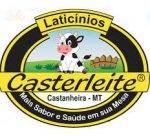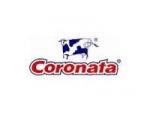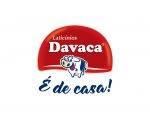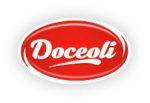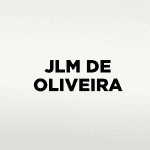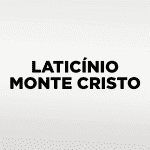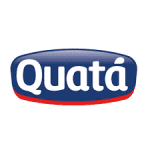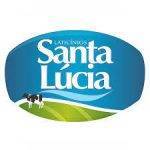Efeitos Novos das Gorduras Saturadas e do Colesterol em Doenças Cardiovasculares
27, dezembro, 2018
Dr. Ronald Krauss, pesquisador e médico de reputação internacional falou na ACCN 2013 sobre as evidências da implicação de gorduras saturadas e do colesterol advindas de dietas na etiologia de doenças cardiovasculares.
The Counter intuitive Effects of Saturated Fats & Cholesterol on Cardiovascular Disease American Society for Nutrition
Dr. Ronald Krauss, a world-renowned physician and researcher, spoke at ACCN 2013 about the evidence implicating saturated fats and dietary cholesterol in the etiology of cardiovascular disease. It was discovered in his lab that the “LDL” we all hear about in the media is actually a conglomerate of many different LDL particles—large buoyant ones and small dense others—that are largely determined by the foods we eat.
Dr. Ronald Krauss, pesquisador e médico de reputação internacional falou na ACCN 2013 sobre as evidências da implicação de gorduras saturadas e do colesterol advindas de dietas na etiologia de doenças cardiovasculares. Foi descoberto em seu laboratório que o “LDL” sobre o qual todos ouvimos falar nas mídias, é na verdade “um conglomerado” de muitas partículas diferentes – algumas grandes e flutuantes e outras pequenas e densas – que são diretamente determinadas pelos alimentos que comemos.
Dietary Cholesterol
Dr. Krauss’s talk began by covering the counter intuitive finding that dietary cholesterol has a very small and variable effect on blood cholesterol, citing one study that found no correlation between egg consumption of up to 10 eggs per week and cardiovascular risk. This is likely due to the fact that your liver has the ability to detect dietary cholesterol and adjust its cholesterol production accordingly. A review of the historical literature regarding dietary cholesterol can be viewed here. This has very important implications for dietary policy, since this fact first appeared in the literature as far back as 1955 yet we are still told to limit our cholesterol intake to less than 300mg per day.
Colesterol advindo da dieta
Para iniciar sua palestra, Dr. Krauss começou comentando suas descobertas não usuais de que colesterol advindo da dieta tem um efeito muito pequeno e variável sobre o colesterol do sangue, citando um estudo que não encontrou correlação entre o consumo de até 10 ovos por semana e o risco de doenças cardiovasculares. Isso se explica especialmente pelo fato de que nosso fígado tem a capacidade de detectar o colesterol advindo da dieta e ajustar a produção de colesterol adequadamente. Essa é uma descoberta muito importante para as políticas de alimentação, já que essa associação aparece na literatura em 1955 e ainda hoje nós somos orientados a limitar o consumo de colesterol a menos de 300mg por dia.
Saturated Fats
Dr. Krauss went on to discuss the role of saturated fats in the development of heart disease. The logic explaining its role is a linear one: eating saturated fat results in a rise in LDL and total cholesterol (surprisingly HDL as well), and high cholesterol is associated with heart disease. But this logic does not differentiate between pharmacologic and dietary increases in LDL. There is documented benefit to cholesterol lowering with statin therapy in subjects with known heart disease, but the evidence that lowering LDL by decreasing saturated fat results in less heart disease has yet to be convincingly demonstrated.
Gorduras Saturadas
Dr. Krauss em continuação, discorreu sobre o papel das gorduras saturadas no desenvolvimento de doenças cardíacas. A explicação lógica sobre o papel das gorduras saturadas é linear: comer gorduras saturadas resulta no aumento do LDL e no colesterol total (e surpreendentemente também aumenta o HDL), e colesterol alto é associado a doenças cardíacas. Mas essa lógica não diferencia entre aumento farmacológico de LDL e aumento proveniente de dietas. Há benefícios documentados da diminuição do colesterol em pacientes com doenças cardíacas, tratados com estatinas, mas não foi ainda demonstrado de forma convincente que a diminuição do consumo de gordura saturada possa resultar na diminuição de doenças cardíacas.
This logic also does not address the sub fractionation of LDL particles. As I described in a previous post documenting Krauss’s work, “when Dr. Krauss and other researchers began testing the effects of diet on these LDL particles, he consistently found that the dietary carbohydrates seemed to be changing the density of the LDL particles. As the carbohydrate content of the diet increased, along with a concomitant decrease in dietary fat, the LDL particles migrated from their buoyant form to the small, dense, atherogenic form.”
A lógica também não leva em conta as sub-frações da partículas de LDL. Como descrito no post anterior do trabalho do Dr. Krauss, “quando o Dr. Krauss e outros pesquisadores começaram a testar os efeitos da dieta dessas partículas de LDL, ele achou consistentemente que os carboidratos parecem mudar a densidade das partículas de LDL. Como o conteúdo de carboidratos na dieta aumenta, concomitantemente à diminuição de gorduras na dieta, as partículas de LDL migram da sua forma flutuante, para a forma pequena, tensa e aterogênica.
This would suggest that the carbohydrates – not saturated fats – in the diet may be the bigger contributor to the development of heart disease. “Carbohydrates,” Dr. Krauss described in Friday’s lecture, “have a major influence on the smaller LDL particles. They can increase small LDL without increasing total LDL. The main effect of saturated fats is on larger LDL particles, which is less strongly associated with CVD risk than small LDL.” A summary of the randomized clinical trials and prospective studies related to saturated fat and heart disease can be found at the link. Krauss concluded his controversial talk by stating that “LDL is important but making recommendations for saturated fat is really not good science.”
Isso sugere que os carboidratos – e não as gorduras saturadas na dieta, é que são os grandes contribuintes para o desenvolvimento de doenças cardíacas. “Carbohidratos”, descreveu Dr. Krauss na palestra de sexta-feira, “tem uma maior influência nas menores partículas de LDL. Elas podem aumentar sem que o LDL total aumente. O maior impacto das gorduras saturadas é sobre as partículas maiores de LDL, que estão menos associadas com o risco de doencas cardiovasculares do que as partículas pequenas de LDL. Um resumo dos ensaios clínicos e estudos prospectivos relacionados a gordura saturada e doenças cardíacas pode ser encontrada no link da American Society of Nutrition. Dr. Krauss concluiu sua palestra controversa afirmando que: LDL é importante mas fazer hoje quaisquer recomendações a respeito de gorduras saturadas não é boa ciência.

















